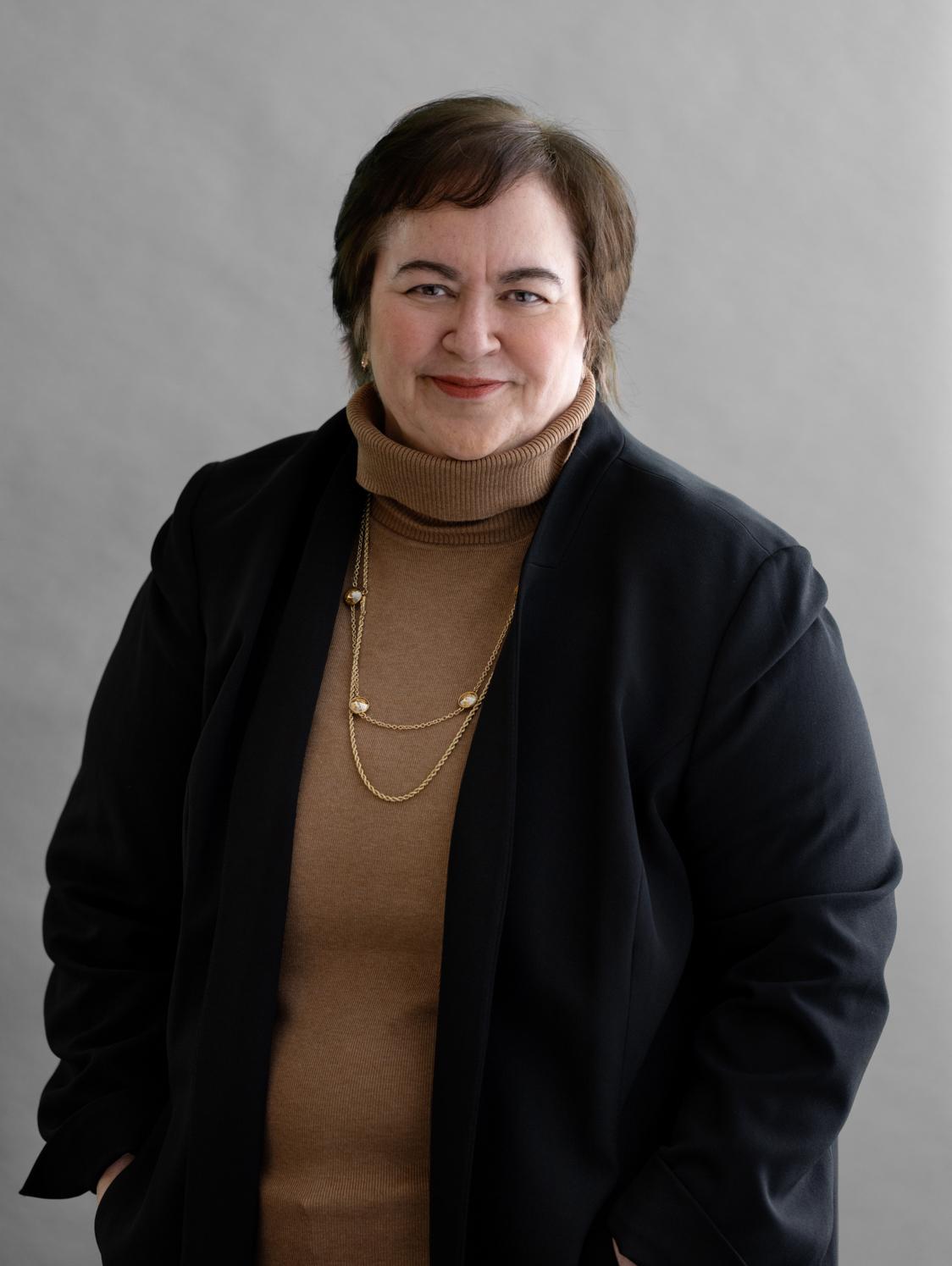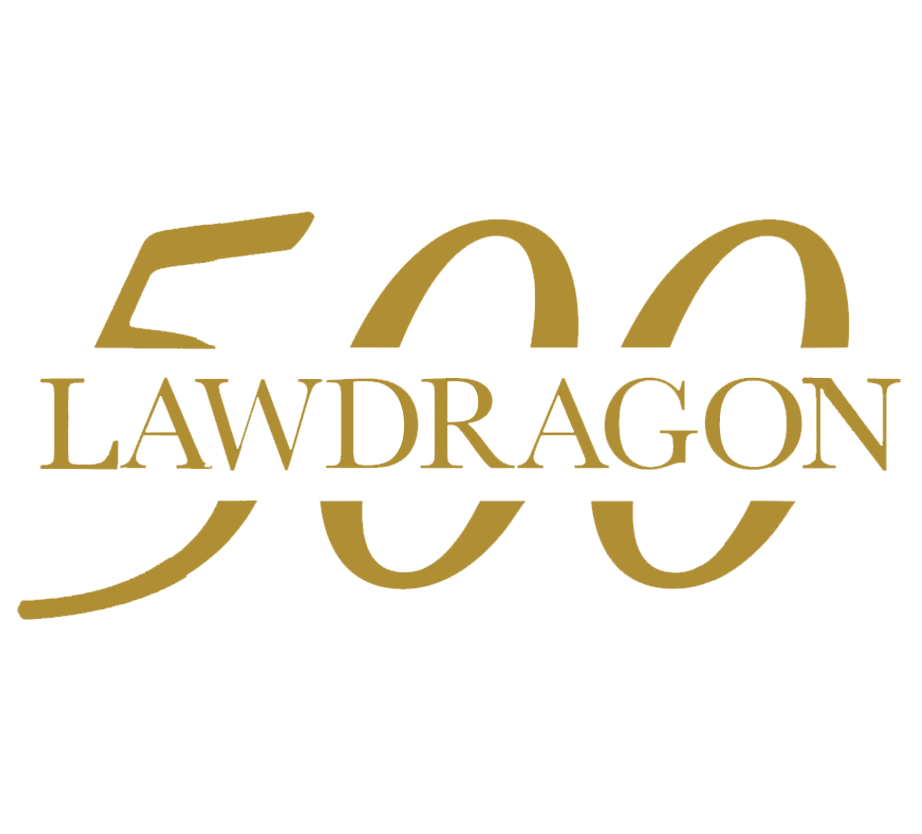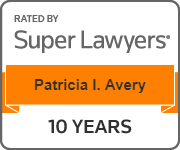Patricia I. Avery
Senior Partner
- New York University School of Law (J.D., 1976)
- New York University (B.A., 1973)
- New York
- Supreme Court of the United States
- U.S. Court of Appeals for the Second Circuit
- U.S. Court of Appeals for the Third Circuit
- U.S. Court of Appeals for the Fourth Circuit
- U.S. Court of Appeals for the Fifth Circuit
- U.S. Court of Appeals for the Seventh Circuit
- U.S. Court of Appeals for the Ninth Circuit
- U.S. Court of Appeals for the Eighth Circuit
- U.S. Court of Appeals for the Eleventh Circuit
- U.S. District Courts for the Southern and Eastern Districts of New York; Northern District of Texas; and Central District of Illinois
Patricia is the co-author of "To Stay or Not to Stay," Practicing Law Institute (1996); "Selection of Lead Plaintiff Under the Private Securities Litigation Reform Act of 1995," Practicing Law Institute (1996); as well as the co-author (or ghost writer) of a number of other articles on securities law practice and procedure published by the Practicing Law Institute;"The State Court Class Action--A Potpourri of Differences," The Forum, ABA, Vol. XX, No. 4, Summer 1985; and "Proving Damages in Non-Class Securities Cases," presented at the Commercial Law section of the Association of Trial Lawyers of America, annual convention, July 1986. Patricia was admitted to the New York Bar in January 1977.
Experience
Since joining Wolf Popper in 1982, Patricia has been involved principally in securities (both class action and derivative), antitrust, and consumer fraud litigation. In addition to playing major roles in many of the leading decisions and substantial judgments obtained by the Firm over the years, Patricia has had sole or principal responsibility at the Firm for numerous securities and other cases, as well as using her extensive experience to assist as a team member in many other cases, including, among many others:- Leventhal v. Streamlabs LLC, 2022 U.S. Dist. LEXIS 231211 (N.D. Cal.), Patricia Avery was the partner in charge of this consumer class action challenging the automatic enrollment of consumers in a monthly subscription, in which the Firm succeeded in defeating the motion to dismiss filed by Defendant. This lawsuit alleged that Streamlabs misled consumers and failed to disclose that adding a GIF or effect to a onetime donation to a streamer using Streamlabs resulted in enrollment in Streamlabs Pro, which charged consumers $5.99 per month automatically, even if they do not have a Streamlabs account. The Firm successfully negotiated a $4.4 million settlement which was approved by the Court on January 30, 2025.
- Martinek v. AmTrust Fin. Servs., 2020 U.S. Dist. LEXIS 146542 (S.D.N.Y. Aug. 14, 2020), Patricia participated in this securities fraud class action on behalf of preferred stockholders of AmTrust Financial Services, Inc., a large insurance company, in which the judge denied the defendants' motion to dismiss, and subsequently granted plaintiff's motion for class certification, appointing Wolf Popper as lead counsel, 2022 U.S. Dist. LEXIS 20056 (S.D.N.Y. Feb 3, 2022). A settlement in the amount of $13 million was approved by the Court in 2022.
- Bozarth v. Envision Healthcare Corp., 2020 U.S. Dist. LEXIS 117294 (C.D. Cal, June 30, 2020), the Wolf Popper team headed by senior partners Chet B. Waldman, Emily Madoff, and Patricia I. Avery achieved an extraordinary settlement of virtually a 100% recovery for class members who filed documented claims in this California surprise medical billing class action (Case No. 5:17-cv-1935 FMO (SHKx)). Plaintiffs brought claims on behalf of patients who went to emergency rooms at hospitals that were in-network to their insurance plans, only to find out later when they received large bills that the ER physicians were out-of-network to their insurance. Plaintiffs alleged that defendants violated state statutes and the common law. The settlement provided for refunds of payments over the “allowed amounts” indicated by their insurance companies or writeoffs of such bills if they were not paid. The settlement also provided for nonmonetary relief in the form of disclosure requests made by defendants to the dozens of California hospitals at which defendants provide ER physicians. In an order entered on June 30, 2020, the Court found that the settlement “affords class members immediate and potentially significant monetary benefits in the face of various defenses to plaintiffs’ claims,” that the “[c]lass recovery is potentially 100%,” and that “the relief provided to the class is more than adequate.” Mr. Waldman and Ms. Avery also achieved a recovery of virtually 100% for class members who filed documented claims in a similar surprise bill case in Texas, Kaur v. Envision Healthcare Corp., Case No. 4:19-cv-02480 (S.D. Tx.), and in Arizona, Kline v. Envision Healthcare Corp., Case No. CV2019-003061 (Superior Ct., Maricopa Cnty, AZ).
- McLaughlin v. Wells Fargo Bank, NA., No. C 15-02904 WHA (N.D. Cal.), in a precedent setting Order under the Truth in Lending Act’s (“TILA”) Regulation Z, the Court in the Northern District of California, in denying the motion to dismiss of Wells Fargo Bank, held that the bank is required under TILA to disclose the amount of property insurance proceeds held by the bank on the homeowner's payoff statement. The Court noted that “[n]o decision from our court of appeals has ever addressed the issue of whether TILA compels lenders to include ‘potential’ credits in payoff statements.” The Court found, “[a]s a matter of law, the bank is wrong.” McLaughlin v. Wells Fargo Bank, NA., No. C 15-02904 WHA, Order that TILA Required Insurance Proceeds to be Reflected in Payoff Statement (N.D. Cal. Oct. 29, 2015). On March 15, 2017, the Court granted final approval of a settlement providing Damages Class members with 88% of the maximum available monetary recovery under TILA and requiring Wells Fargo to alter its practices to comply with TILA. Damages Class members received over $2,500 per account.
- In re: PHC, Inc. Shareholder Litigation, 1:11-cv-11049-PBS (D. Mass.): Patricia was a member of the trial team in this litigation on behalf of shareholders of a behavioral health company, for damages arising from an unfairly priced stock-for-stock merger in which the company’s CEO and chief negotiator also received a cash payment of several million dollars. Following a two-week jury trial in which the jury found that the CEO controlled the company and failed to demonstrate that the merger was entirely fair to the minority shareholders, the Court ordered the CEO to disgorge $2,964,396, plus interest. The Court also complemented counsel, stating "I think you all [ ] did a great job trying this case. I was telling my law clerks you don't often see commercial litigation actually go to trial so [this is] a great example not only it being litigated but also, you know, the skills . . . . and I thank the folks in [your office] for so much support that they've given along the way because I know it's a big case with a lot of paper.... And someone should study the case in terms of how attorneys should treat one another, and I appreciate that…." The United States Court of Appeals for the First Circuit complimented counsel and subsequently affirmed the award, noting that the issues on appeal were “intricate, entangled, and in some instances novel.” MAZ Partners LP v. Shear (In re PHC, Inc. S'holder Litig.), Nos. 17-1821, 17-1904, 2018 U.S. App. LEXIS 18035, *1 (1st Cir. July 2, 2018).
- Jamison v. Bank of America, N.A., No. 2:16-cv-00422-KJM-AC, 2016 WL 3653456 (E.D. Ca., July 7, 2016), the Court in the Eastern District of California found the reasoning of the McLaughlin case prosecuted by Patricia and described above "to be persuasive and consistent with TILA's remedial purpose. . . As a result, an 'accurate' payoff statement should have disclosed the [insurance] proceeds."
- In re Yongye International, Inc. Shareholder Litigation, consolidated Case No. A-12-670468-B (Eighth Judicial District Court, Clark County, NV), in which Ms. Avery served as Co-Lead Counsel for Plaintiffs, counsel litigated the acquisition of Yongye International, Inc. on behalf of its public shareholders, securing not only an initial increase in the acquisition price, but an additional settlement fund in the amount of $6 million, as well as substantial additional public disclosures in conjunction with the deal. According to Cornerstone Research, fewer than 10% of such cases result in settlement funds. The Court in Nevada approved the proposed settlement at a hearing held on March 3, 2016.
- In re Atheros Communications, Inc. Shareholder Litig., 2011 Del. Ch. LEXIS 36 (March 4, 2011), as Co-Lead Counsel for Plaintiff shareholders, secured an injunction against $3.1 billion acquisition of Atheros Communications, Inc. by Qualcomm Incorporated pending further disclosures to shareholders.
- Huberman v. Tag-It Pacific, Inc., 2009 U.S. App. Lexis 2780 (9th Cir. Jan. 16, 2009) (Ninth Circuit reversed grant of summary judgment to defendants and directed that District Court grant class certification as requested by Plaintiff). Subsequent settlement approved by the Court in December 2009.
- Middlesex Retirement System v. Quest Software, Inc., 527 F.Supp.2d 1164 (C.D. Cal. 2007); and Middlesex Retirement System v. Quest Software, Inc., CV 06-6863 DOC (RNBx), Amended Order (C.D. Cal. July 10, 2008) (decisions primarily denying defendants’ motions to dismiss in options backdating case); Middlesex Retirement System v. Quest Software, Inc., Order, CV 06-6863-DOC (RNBx) (C.D. Cal. Jul. 8, 2009), aff’d, Order (C.D. Cal. Sept. 18, 2009) (order granting Plaintiff’s motion to compel); and Order, CV 06-6863-DOC (RNBx) (C.D. Cal. Sept. 8, 2009) (Granting Lead Plaintiff’s Motion for Class Certification). After extensive discovery, in December 2009, the court preliminarily approved the settlement, stating counsel “really have the court’s profound congratulations and compliments.” The court thereafter gave final approval to the $29.4 million settlement in April 2010.
- Thurber v. Mattel, Master File No. CV-99-10368-MRP(CWx) (C.D. Cal.) (§10(b) claims) and Dusek v. Mattel, Master File No. CV-99-10864-MRP(CWx) (C.D. Cal.) (§14(a) claims), Wolf Popper was a member of the Executive Committee of Plaintiffs' counsel, but was also specifically appointed by the Federal Court to have primary responsibility for the prosecution of the Dusek v. Mattel §14(a) claims. After more than three years of extremely hard-fought litigation in which Patricia handled the day-to-day prosecution of the case, including motions, the production of millions of documents, and the taking or defending of more than 40 depositions, both cases settled for the aggregate sum of $122 million, with $61 million allocated for the Dusek v. Mattel §14(a) claims, believed to be the then largest settlement of a §14(a) case. Upon approving the settlement, the Judge complimented counsel saying that the settlement was an "awfully good result."
- Stanley v. Safeskin, Lead Case No. 99cv454-BTM(LSP)(Consolidated) ($55 million settlement approved by the Court in 2003) (the Court complimented plaintiffs' co-lead counsel, Patricia on behalf of Wolf Popper, for their work, noting that plaintiffs’ co-lead counsel "are highly skilled in these cases," who "vigorously" and "diligently" prosecuted the case and "procured an exceptional award for the class," that they had a "great deal of experience in class action litigation" and are "highly regarded in this area of the law"; indeed, the Judge noted "I was kind of looking forward to trying this case, because it would have the best lawyers in the country trying this case. . . ."; paying them perhaps the ultimate compliment, the Court further said, “From the plaintiffs’ perspective . . . you handled it on a much higher plane, probably on a textbook or ideal plane. If they would teach people how it should be done in law school, this would be the example. . . .”).
- Bell v. New Horizons Worldwide, Inc., Case No. BC 289898 (Complex Litigation Program) (Superior Court of the State of California, County of Los Angeles) (innovative settlement on behalf of a nationwide class of consumers who had purchased technical training courses from Computer Learning Centers).
- In re Grand Casinos, Inc. Sec. Litig., Master File No. 4-96-890 (JRT/RLE) (settlement approved in August 2001, one of the very early decisions sustaining various claims brought under the Private Securities Litigation Reform Act of 1995, finding that plaintiffs met the rigorous pleading standards of the then new Act, 988 F. Supp. 1270 (D. Minn. 1997)).
Patricia has also prosecuted numerous other consumer fraud and antitrust cases. For example, Patricia was the primary litigator at the Firm responsible for negotiating the settlement of a consumer fraud action in New Jersey, negotiating a settlement for 90% of the single damages, plus a 20-year injunction against the alleged misconduct, as well as other relief. Patricia also successfully negotiated a settlement against a nationwide chain of computer training centers involving the sale of packages of computer training programs. Patricia has also been largely involved in many of the antitrust cases prosecuted by the Firm.
Patricia also has significant trial experience including, serving as trial or co-trial counsel in a variety of federal and state court cases. She served as a member of the trial team in In re PHC, Inc. Shareholder Litigation, which was tried for two weeks in federal court in Boston in February-March 2017, in which the Court ordered PHC's CEO to disgorge almost $3 million, which decision was affirmed on appeal. Patricia served as lead trial counsel in a shareholder corporate freeze-out case in Delaware, and in business transaction trials in New York (both state and federal court), and in several bankruptcy court trials in the Southern District of New York. Patricia was also co-trial counsel in, among other cases, Abzug, et ano. v. Kerkorian, et al, CA 000981, Superior Court, Los Angeles, California (settled for $35 million before jury verdict rendered), and Citron v. E.I. duPont de Nemours & Co. in Delaware Chancery Court (co-trial counsel with a senior partner of the Firm) in which the Vice-Chancellor complimented counsel "for the able way in which they presented the case" and the "good job" done. Patricia was also the sole lead trial counsel in the defense of a $100 million arbitration on behalf of an international airline that was in arbitration hearings for many weeks over the course of two years, successfully reducing damages 99% before settlement. (Patricia also has served as trial or co-trial counsel in other matters tried to panels of arbitrators.)
Memberships & Associations
- American Bar Association, Litigation Section, Securities Litigation Committee, Subcommittee, former contributor
- Member, American Bar Association (and several sections) - Member since 1977;
- Member, New York County Lawyers' Association - Member since 1977
Recognition
- Super Lawyers® (New York Metro Edition) in Securities Litigation, 2007, 2014-2025
- Lawdragon 500 Leading Plaintiff Consumer Lawyers - 2025
- Holds Martindale-Hubbell’s highest rating for legal ability and ethical standards (has held its highest rating for over 40 years)
Firm News | 03/05/2025
Case Updates | 01/30/2025
Case Updates | 10/29/2024
Case Updates | 07/15/2024
Case Updates | 06/21/2024
Case Updates | 04/16/2024
Case Updates | 01/30/2024
Case Updates | 11/08/2023
Case Updates | 02/02/2021
Case Updates | 08/24/2020
Case Updates | 07/08/2020
Case Updates | 02/20/2020



